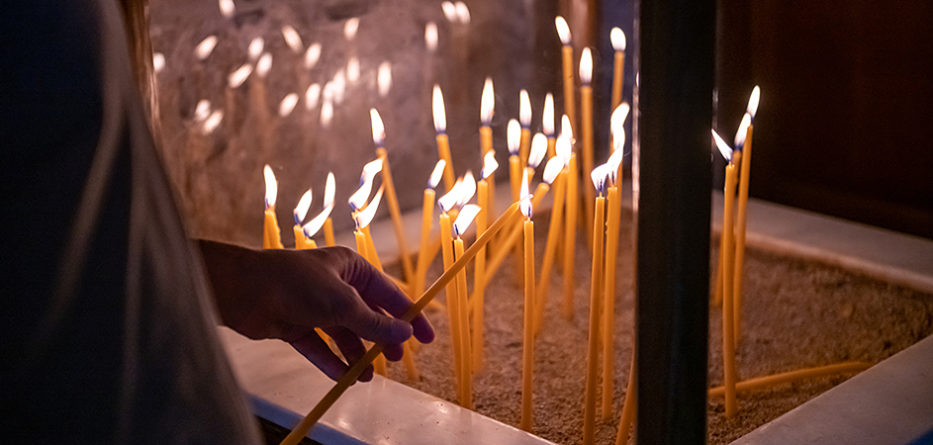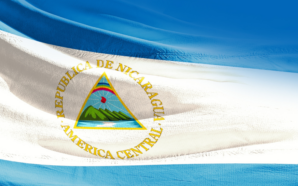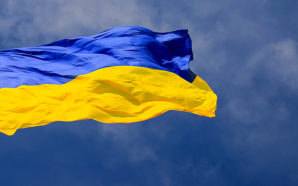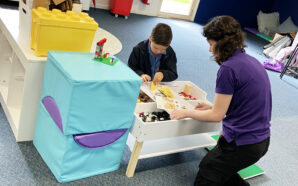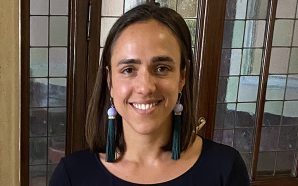Homily for the Fifth Sunday of Lent
Readings: Isaiah 43:16-21; Psalm 125; Philippians 3:8-14; John: 8:1-11
3 April 2022
In today’s gospel, we hear the story of the woman caught in adultery. This story has been inserted into Chapter 8 of John’s gospel. But the scripture scholars are agreed it is not part of the original gospel. There is a showdown between Jesus and the religious authorities who want to know what he would prescribe for the woman caught in adultery, there being no mention of the man. Under the Mosaic law, she would be stoned. Jesus frustrates the legalistic religious leaders by replying: ‘Let the one among you who is without sin be the first to throw a stone at her.’ They’re honest enough to walk away.
Listen at https://soundcloud.com/frank-brennan-6/homily-3422
Jesus then engages with the woman: ‘“Woman, where are they? Has no one condemned you?” She replied, “No one, sir.” Then Jesus said, “Neither do I condemn you. Go, and from now on do not sin any more.”’
When minded to condemn others, let the one without sin cast the first stone. Jesus comes not to condemn but to encourage us on a new way of life.
These two simple but profound messages of forbearance and encouragement came home to me during this past week when Pope Francis met with two delegations of First Nations Peoples from Canada together with some of the Canadian bishops. He met first with 10 Metis delegates, the Metis being descendants of Indian tribes and European settlers, and then with 8 Inuit, the traditional owners of the Arctic region of Canada. On Friday, he met again with both groups and issued a formal papal apology.
These two groups have for the last 30 years been seeking apologies and acknowledgment for the wrongs suffered by them and their ancestors as a result of the assimilation policies which continued from the establishment of the Canadian nation in 1867 until recent times. In particular, they have sought apologies for the system of residential schools established by government and administered by churches. An estimated 150,000 Indigenous children were forced to attend residential schools, more than 60 per cent of which were run by the Catholic Church.
The Canadian Truth and Justice Reconciliation Commission said: ‘Canada’s residential school system for Aboriginal children was an education system in name only for much of its existence. These residential schools were created for the purpose of separating Aboriginal children from their families, in order to minimize and weaken family ties and cultural linkages, and to indoctrinate children into a new culture—the culture of the legally dominant Euro-Christian Canadian society’[1].
It’s 30 years since the Catholic bishops of Canada and leaders of religious orders issues their first apology. The Church apologies were followed with an apology from government in 2008 just prior to the institution of the Canadian Truth and Reconciliation Commission. A year later an Indigenous delegation met with Pope Benedict after which the Holy See issued a statement observing: ‘His Holiness emphasised that acts of abuse cannot be tolerated in society. He prayed that all those affected would experience healing, and he encouraged First Nations Peoples to continue to move forward with renewed hope.’
In 2015, the Canadian Truth and Justice Reconciliation Commission called upon the Pope ‘to issue an apology to Survivors, their families, and communities for the Roman Catholic Church’s role in the spiritual, cultural, emotional, physical, and sexual abuse of First Nations, Inuit, and Métis children in Catholic-run residential schools’.[2]
At the end of their first meeting with Pope Francis this week, Natan Obed, the president of Inuit Tapiriit Kanatami said, ‘We want this new relationship of reconciliation to be based on action and mutual shared ambition’. Having discussed residential schools, their history and policy, with Pope Francis, Mr Obed said, ‘With all those heavy things, there was also a true sense of openness and kindness that was showed to us as a delegation’. He thanked those who helped ‘for getting us to this day’ and thanked the pope for his warm welcome.
President Obed told the media: ‘We’re still in search of the lasting respect and the right to self-determination and the acknowledgment of that right by institutions that have harmed us and this is where we are at this moment, and we look forward to his new path and we will hold people accountable to the path that we say we have a shared ambition to walk together on.’[3]
On Friday, issuing his apology, Pope Francis said to the Indigenous representatives: ‘The chain that passed on knowledge and ways of life in union with the land was broken by a colonization that lacked respect for you, tore many of you from your vital milieu and tried to conform you to another mentality. In this way, great harm was done to your identity and your culture, many families were separated, and great numbers of children fell victim to these attempts to impose a uniformity based on the notion that progress occurs through ideological colonization, following programmes devised in offices rather than the desire to respect the life of peoples.’
He put this profound challenge, ‘The memory of the past must never be sacrificed at the altar of alleged progress.’
Then came the apology: ‘For the deplorable conduct of those members of the Catholic Church, I ask for God’s forgiveness and I want to say to you with all my heart: I am very sorry. And I join my brothers, the Canadian bishops, in asking your pardon.’
After which came the pledge to walking forward together: ‘I wish to tell you that the Church stands beside you and wants to continue journeying with you. Dialogue is the key to knowledge and sharing, and the Bishops of Canada have clearly stated their commitment to continue advancing together with you on a renewed, constructive, fruitful path, where encounters and shared projects will be of great help.’[4]
These church and government apologies relate to policies instituted 150 years ago, policies which continued for more than a century with the support of all major political parties and with little objection from Canadian society, and to actions including child sexual abuse which were the consequence of such deficient policies.
In Australia today, as in Canada, we are still trying to find a way to provide appropriate education opportunities for Indigenous students from remote communities, trying to ensure that ‘the chain that passe(s) on knowledge and ways of life in union with the land’ is not broken while that chain is at the same time designed to enhance the prospects of children having real choices for education, employment, and participation in the life of the nation and our globalised world.
In hindsight, there can be agreement about the mistakes of past policies and practices, as was expressed in the Vatican meetings this week. With the benefit of that hindsight, we are called to provide an education path forward for all children, no matter how remote their community and no matter how traditional their lifestyle.
Presently there are very few remote Aboriginal communities in Australia which can provide appropriate secondary education on country. The Australian Indigenous Education Foundation led by respected community leaders like Warren Mundine and Andrew Penfold provides scholarship funding for over 1,000 Indigenous students ‘to complete Year 12 or tertiary studies, with career support to help them make a successful transition to employment’[5]. Many of these students come from remote Aboriginal communities and are able to attend some of the finest boarding schools in the country. The Foundation also provides a pathway program to assist students make a successful transition from school or university to further studies or employment.
Dr Marnie O’Bryan has recently published Boarding Schools and Australia’s First Peoples, a study in which she finds:
‘Boarding school is widely recognised as a locus of opportunity. There is compelling logic to making places available for Australia’s most disadvantaged students in the highest performing schools, but it must also be acknowledged that there is a high social, emotional, as well as financial cost associated with boarding. For traditionally oriented young people, with a language background other than English, to be away from home for long periods of time during formative years may well impact their language proficiency and the transmission of cultural knowledge. There has been scant attention paid to that issue in the formation of education policy.’[6]
O’Bryan warns:
‘For the 20% of First Peoples who live in remote Australia, there is no Plan B. That is a big problem. Young people in this demographic are more likely to be traditionally oriented and have a first language other than English. They have distinct social educational and health profiles which urban educators, with Eurocentric perspectives on the world, may or may not recognise, understand or be equipped to provide for.’[7]
What will we be apologising for in the next century? How now can we work together to enhance the prospects for those children for whom a first rate boarding school in the city is not the answer? As Pope Francis has indicated, it is a mistake for government to go it alone. It is a mistake for churches and community groups simply to do the government bidding. There is a need for Indigenous leaders and educators to be at the table shaping the policies; there is a need for real partnerships to deliver the programs and oversee them; there is a need for governments, educators and Indigenous leaders to claim ownership of the chain which links land and opportunity. Let the one without fault cast the first stone. Let’s provide every encouragement for those seeking to make a fresh start.
The image of Jesus and the woman in today’s gospel alone together, after those uttering righteous platitudes have departed the scene, depicts a renewed, constructive, fruitful path, where encounters and shared projects will be of great help, regardless of the wrongs and mistakes of the past.
[1] Honouring the Truth, Reconciling for the Future: Summary of the Final Report of the Truth and Reconciliation Commission of Canada, 2015, p.v
[2] Ibid, p.223 (Recommendation 58)
[3] See https://www.youtube.com/watch?v=zyshZ9rno_E
[4] See https://www.vatican.va/content/francesco/en/speeches/2022/april/documents/20220401-popoli-indigeni-canada.html
[5] Australian Indigenous Education Foundation, see http://www.aief.com.au
[6] Marnie O’Bryan, ‘Boarding Schools and Australia’s First Peoples’, Springer, 2021, p. ix,
[7] Ibid
Fr Frank Brennan SJ is the Rector of Newman College, Melbourne, and the former CEO of Catholic Social Services Australia (CSSA). He has been appointed a peritus at the Fifth Plenary Council of the Australian Catholic Church.




